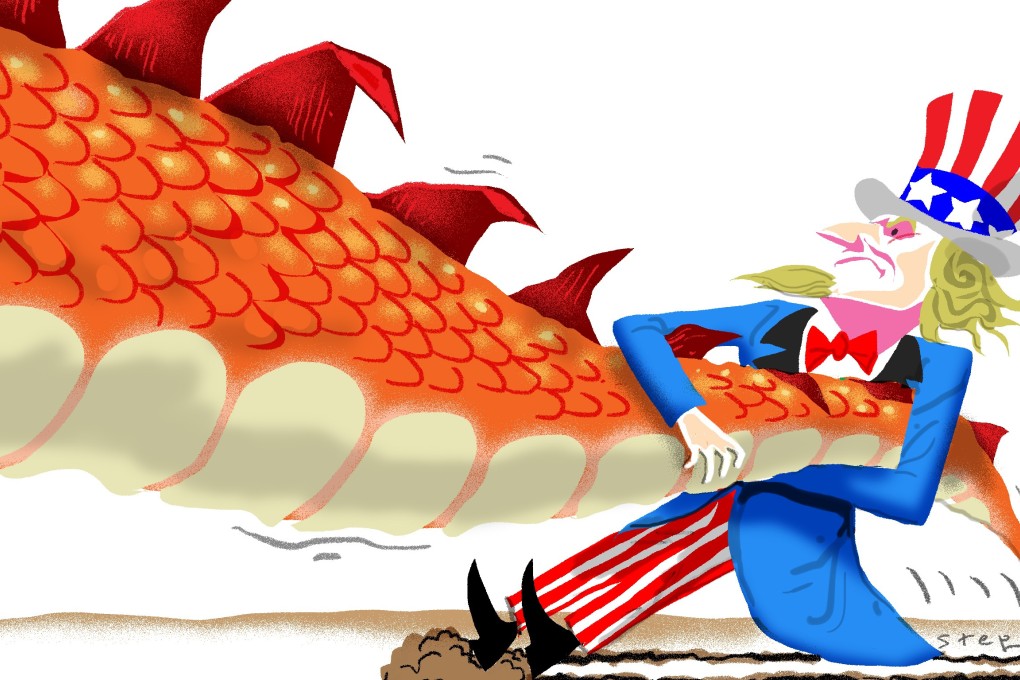Advertisement
Opinion | From Taiwan to the belt and road, China’s ‘grand plan’ is to push the US out of Asia
- Patrick Mendis and Joey Wang say the US should not take China’s talk of a ‘peaceful rise’ at face value, but must work with allies to move China towards international norms, rather than contain it
Reading Time:4 minutes
Why you can trust SCMP

In his recent “message to compatriots in Taiwan” to mark the 40th anniversary of a call from Beijing to end military confrontation across the Taiwan Strait, President Xi Jinping offered them a five-point “peaceful unification” proposal, but made no promise to renounce the use of force.
The communique reveals a subtler “grand plan” of China. The Taiwan issue is simply one step in Beijing’s larger strategic goal of pushing the United States and its influence out of the Indo-Pacific region.
However, this strategic endgame cannot be achieved without the support of other objectives such as the Belt and Road Initiative and establishing control over the East and South China seas. Each of these objectives must be understood within the geopolitics of the regional balance of power through the US-led security dialogue also involving Japan, Australia and India, a grouping commonly known as the Quad.
Advertisement
China’s priority begins with the Communist Party of China and its legitimacy. Because China’s strategic objectives are predicated on this legitimacy, the party must provide economic and social stability for its citizens, which requires an uninterrupted supply of energy to not only deliver economic growth but also sustain military operations. It is no surprise that given China’s economic challenges, Beijing has called for stability in six key areas, including employment and finance.
China’s primary objective of defending territorial integrity begins with Taiwan. For China, Taiwan is not merely a runaway province, it is a focal point in the first island chain that would allow China to project power out to the Western Pacific and the second island chain. This is generally referred to as Anti Access/Area Denial.
Hence, the formation of the air defence identification zone in the East China Sea and the island-reclamation, followed by military build-up, in the Spratly and Parcel islands in the South China Sea are not only meant to claim de facto rights to the resources within the nine-dash-line, they are also tactical steps towards employing coercive diplomacy with its neighbours, and establishing operational control over the region in its move towards unification with Taiwan. China is also working diplomatically to “peel” away those countries that currently recognise Taiwan.
Advertisement
Select Voice
Select Speed
1.00x

